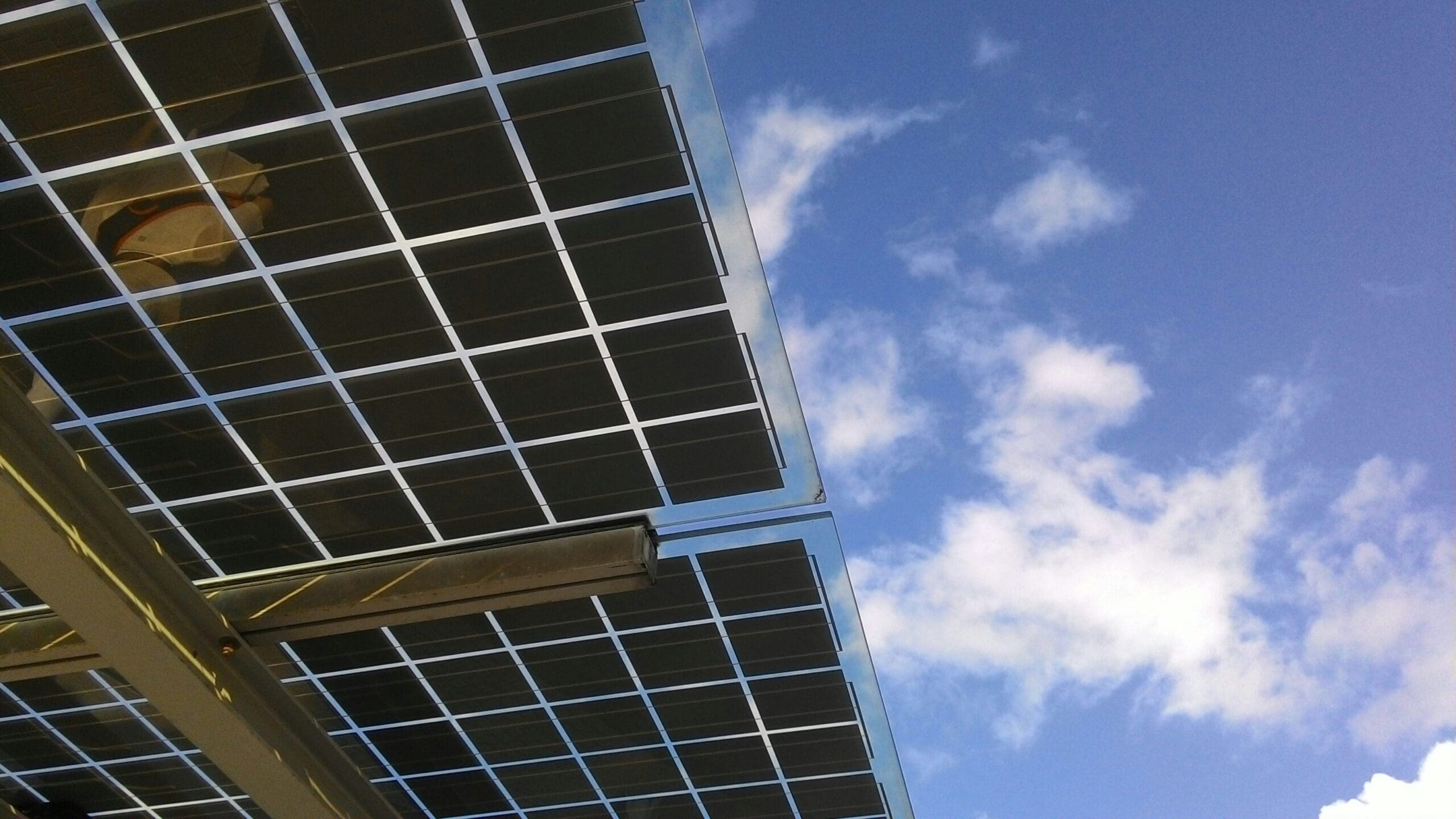Are you looking to improve your sustainability credentials as a business?
It is important for all of us as individuals and businesses to reduce our carbon footprint.
But as we’re all on the sustainability learning curve together, sometimes it can be necessary to learn new terminology to further our knowledge.
Here are some of the top sustainability terms you need to know from the Human Built team.
B Corp
A B Corp (also known as B Corporation) is a type of certification given to businesses which display a high level of sustainability and social responsibility. Created in response to the growing number of companies that wanted to solve social and environmental issues, getting B Corp status is highly desirable for any business which takes its commitment to the climate crisis seriously.
Biodiversity
Biodiversity considers life on Earth in various forms including all species, plants and ecosystems. Short for biological diversity, biodiversity is a key consideration within industries such as land development, whereby the local biodiversity must not be negatively impacted by any proposed plans. That’s because human activity such as pollution, deforestation and over-exploitation of natural elements have negatively impacted biodiversity. Therefore, understanding and recognising diversity can create positive legacies for the landscape going forward to support the various species which inhabit it.
Biomimicry
Biomimicry uses nature as an inspiration to come up with new innovations and solutions based on natural forms, processes and ecosystems. One of the most famous forms of biomimicry is the invention of velcro, which was inspired by the burdock plant. In recent times, biomimicry has also been infused into sustainable building design such as The Council House in Melbourne which replicates the processes found in termite mounds to control and maintain the temperature within the building.
Bioplastics
Bioplastics is a type of plastic that is considered to be more environmentally friendly than traditional plastic which has negative environmental associations. Bioplastics are derived from plant-based sources such as algae, cornstarch and sugarcane. Opting for bioplastics for the likes of packaging or disposable cutlery can offer similar properties to regular plastic but with a greatly reduced carbon footprint.
Carbon Dioxide Equivalent (CO2e)
Carbon dioxide equivalent (CO2e) is a metric that is used to measure the CO2 emission equivalent of another greenhouse gas. CO2e is commonly referred to within carbon offsetting or carbon reduction projects.
Carbon Footprint
A carbon footprint measures the total amount of CO2 produced by an individual or a business based on their activity. The larger the carbon footprint, the more greenhouse gases are being generated which negatively impacts global warming leading to climate change. Using a carbon footprint calculator, it is possible to see how much CO2 a person or business generates per year so that carbon savings can then be made.
Carbon Neutral
Carbon neutral involves undertaking activities which remove the same level of CO2 produced by a company. To be carbon neutral, the amount of CO2 produced and reduced are balanced.
Carbon Offsetting
Carbon offsetting involves measures such as planting trees based on the greenhouse gases produced by an individual or business activity. For instance, tree planting schemes which plant trees based on the CO2 produced by flying. While carbon offsetting can be deemed appropriate in some scenarios, it is important to note that carbon offsetting is not a substitute for companies reducing their CO2 emissions as a whole.
Circular Economy
Considers the total lifecycle of a product based on production and consumption to keep the original materials in circulation for as long as possible. Steps to keep an item within a circular economy can include sharing, upcycling, reusing, repairing or recycling existing materials.
Cleantech
Cleantech (also known as clean technology or climatetech) describes a digital product or service which reduces its environmental impact through significant energy efficiency improvements. Cleantech also looks at the sustainable use of resources and makes investments in the protection of the environment.
Climate Change
Climate change refers to the negative environmental changes which have been attributed to the production of greenhouse gases. The impact of climate change includes rising sea levels, extreme weather events, shifts in ecosystems and ocean acidification. As individuals and businesses, reducing how much CO₂ we produce is essential in the fight against climate change.
Closed Loop-Supply Chain
A closed loop supply chain (CLSC) looks to retain resources within the supply chain rather than discarding them. All of which aims to create a sustainable supply chain in which waste is reduced or eliminated.
Compostable
When something is compostable, it means that it has the ability to break down into natural matter to produce nutrient-rich soil. Food scraps are one of the most notable composable elements and can be added to a compost heap to eventually be broken down by microorganisms. By using compostable materials waste can be reduced.
Decarbonisation
To decarbonise something it means to reduce or completely remove the amount of CO₂ being produced by a particular activity. This can include switching to a renewable energy source or by using an alternative product which produces less carbon dioxide.
E-Waste
E-waste (also known as electronic waste) considers the environmental impact of discarded electrical or technology devices. This can include computers, screens, tablets, keyboards, mice, cameras and similar electronic items. There is a growing concern about e-waste especially with advances in technology meaning devices and equipment often become obsolete leading to lots of waste generated.
Eco-Friendly
To be eco-friendly means to carry out or produce something in a way that is not harmful to the environment. Eco-friendly products often require less energy to produce and overall have reduced carbon emissions associated.
ESG
ESG (environmental, social and governance) is a set of standards which measure how the company contributes towards sustainable development. Various aspects of a company’s carbon footprint can be measured for the purpose of ESG reporting. From there, steps can be taken to tackle the most wasteful areas to improve the environmental credentials of the business.
Greenhushing
‘Hush’ is the clue to greenhushing which refers to when companies deliberately hide or under-report their environmental impact to avoid a negative company image. The irony of greenhushing is that it can actually do more harm when the practice is exposed compared to companies who openly talk about their environmental impact with a view to making improvements.
Greenwashing
Greenwashing is when a company claims to be making environmentally-friendly changes but is actually misleading customers based on the true environmental impact of the business.
Life Cycle Assessment (LCA)
Life cycle assessment (LCA) considers the environmental impact of a product or service from its creation until it is disposed of. This can include aspects such as resources, processing, manufacturing, distribution, actual use and end of life.
Net Zero
A global environmental target which involves eliminating greenhouse gases produced by human activity with a view of any remaining emissions being absorbed by natural carbon capture.
Recyclable
An item that can be broken down and turned into a new item rather than the original item going to landfill. Aluminium is an example of a material that is infinitely recyclable, as it can be melted down and turned into a new object an unlimited amount of times.
Renewable Energy
Sources of energy which are not derived from fossil fuels such as solar power or wind power. By switching to renewable energy sources, homes or businesses can lower their carbon emissions.
Scope 1 Emissions
Scope 1 emissions are carbon emissions which an organisation directly owns or controls. For example, having a delivery fleet which uses diesel rather than electric vehicles.
Scope 2 Emissions
Scope 2 emissions are carbon emissions which are caused indirectly by businesses based on emissions from purchased energy.
Scope 3 Emissions
Scope 3 emissions include all other indirect carbon emissions which occur as a result of the activities of the business. This includes aspects such as purchased goods and services, business travel, employee commuting, waste disposal, use of sold products and investments.
Sustainable
Sustainable means that something is produced in a way that causes minimal or no damage to the environment, meaning the activity can continue without long term negative outcomes for the planet. In other words, the activity can be ‘sustained’ for current generations without compromising future generations.
Sustainable Events
Sustainable events look to meet the commercial objectives of the event but in a way which also considers how the impact on the environment can best be reduced. Aspects such as transport, logistics, catering and entertainment can be considered so that sustainable practices are implemented throughout. Human Built has a keen understanding of sustainable events in the UK thanks to our partnership with isla.
Zero Carbon
Something can be described as being zero carbon if no carbon emissions are produced as a result of the product or service. For example, using solar energy to power a device means the sun is the energy source rather than fossil fuels, eliminating the production of carbon in the process.
Zero Waste
Zero waste means that items which could have ended up in landfill were instead recycled, repurposed or composted so that no waste was produced. The ultimate goal of the zero waste movement is to create a circular economy.
Human Built – Sustainable Events UK
Inspired by our sustainability glossary? If you are a UK-based business looking to reduce the carbon footprint of your next event, then Human Built is here to help.
We’ve partnered with a sustainable events agency called isla as part of our commitment to the climate. Alongside focusing on 100% renewable energy for events, we also look to buy local and encourage zero waste as just some of the measures we are taking to put on greener events.
Head over to our exhibition organisers page to learn more about how we incorporate sustainability into our exhibition stand design and corporate event services.
Or want to talk to us about sustainable events directly? Please fill out our contact form and our team will be in touch.






